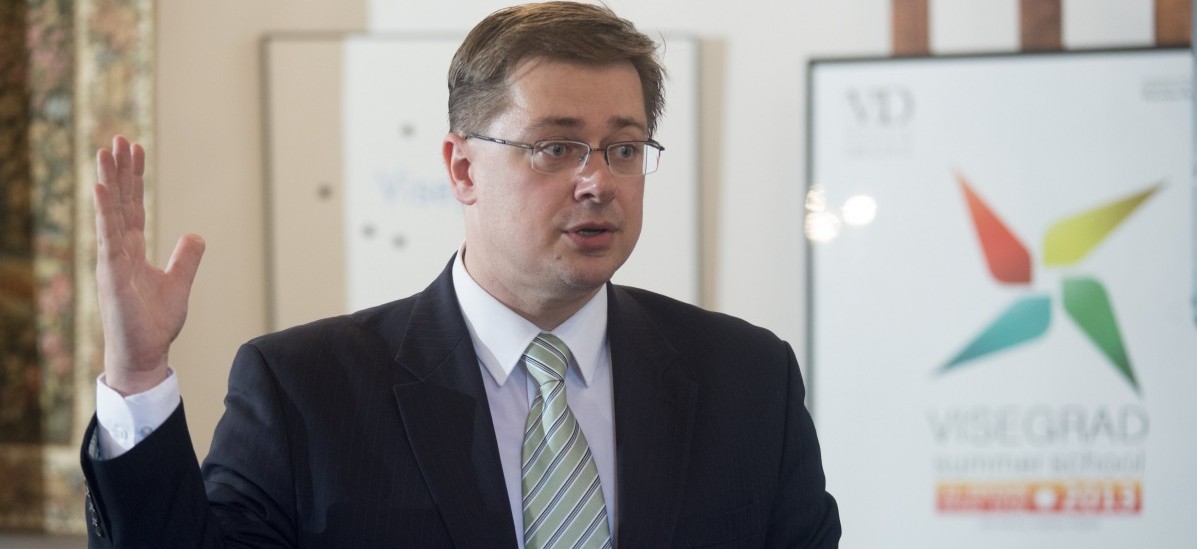
The second day of the Visegrad Summer School was devoted to the challenges of the Central and Eastern Europe.
It was initiated by a brilliant lecture by Michal Vašečka on the concept of the Central Europe. No need to say – it’s one of the fundamental question of the whole Visegrad Summer School. Hence, it shouldn’t come as a surprise that was also a topic of breakfast chats. To Jan Blažek, a participant from the Czech Republic, Central Europe is a kind of anti-imperialist emancipatory political concept originating from the dissident movements in the Visegrad states. “Wasn’t that Vaclav Havel to refresh the idea?” Jan was definitely right but the term “Central Europe” was coined long time before the Velvet Revolution and its meaning has evolved. As Michal Vašečka pointed out either Jesuits, Holy Roman Empire rulers or geostrategists of all nations and times were pondering upon the conceptualisation of Central Europe – and mostly disagree. Obviously, the complicated past and evolving borders do not make such conceptualisation any easier. Be it Mitteleuropa, Zwischeneuropa or Kleinstaaterei, bloodlands or so called region of great brains – these are all social constructs, as Michal Vašečka stated: “a triumph of imagination over geography, some fixation of mind within a larger imagined entity”. Such as Vašečka’s own view that Central Europe is a place of an apple strudel.
Nevertheless, the most intuitive definitions of Central Europe are rather negative. To Nevena Stokanić, a Serbian participant – Central Europe is based on two contradictory complexes. A sense of inferiority towards the West and superiority towards the East. This somehow correspond with the opinion presented in Milan Kundera’s “Return of Central Europe” that served as an inspiration for a debate. The Czech writer argued that Central Europe is a means to differentiate from the uniformity and homogeneity of the Soviet world.
Even though communism collapsed – being Eastern, not the Central Europeans still seems to be frustrating. For instance, Ruslan Temeniuk from Kyiv told me that most of the Ukrainians would rather see themselves as a part of the Central not the Eastern Europe which probably might sound surprising to the residents of the former Habsburgs’ realm.
Eventually, it’s all about an identity which is rather a vague matter subject to personal choices or even feelings.
Nevertheless, Central Europe can also be seen as a more pragmatic thing. That was a topic of the second lecture of the day conducted by Michal Kořan. What are the strategies that small countries may follow to secure their interests in world politics in the face of coming challenges? Michal Kořan highlighted three possibilities: hiding, bandwagoning and biding. Their implementation isn’t any easier due to the changing paradigms of the current international politics. As long the multilateralism evolves into multipolar order, the worldwide economy’s shaken and the Central and Eastern European states suffer from limited resources, deficits of power or unfinished transition and modernisation. However on the other hand it isn’t that bad as it may seem. Visegrad Group for example should be seen as a role model. Consisting of relatively small and globally uninfluential states managed to communicate and cooperate effectively in the heart of Europe. In the light of history this ought to be considered as a noble exception as long the place used to be rather a place of conflicts than a sound and smooth common efforts.
Ziemowit Jóźwik













